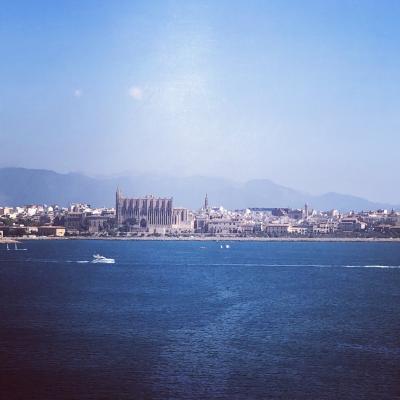How does the Mediterranean climate of Mallorca influence the seasonal activity patterns of its native bees?
Similar Topics
mediterranean climate mallorca
native bee activity
seasonal bee patterns
bee foraging behavior
wildflower bloom mallorca
bee dormancy winter
summer bee adaptation
mallorca pollination ecology
The Mediterranean climate of Mallorca, characterized by mild, wet winters and hot, dry summers, significantly influences the seasonal activity patterns of its native bees. During the cooler, wetter months of winter and early spring, many native bee species remain less active or enter a state of dormancy, conserving energy while floral resources are scarce. As temperatures gradually warm in spring and rainfall promotes a bloom of wildflowers and native plants, the bees become increasingly active, taking advantage of the abundance of nectar and pollen available to fuel their foraging and reproductive activities.
Throughout the long, warm summers, native bees in Mallorca maintain high levels of activity, although the hot and dry conditions can also impose certain limits. Bees often adjust their foraging schedules to avoid the peak heat of the day, tending to collect pollen and nectar during the cooler morning and late afternoon hours. This adaptation helps them conserve water and avoid overheating, ensuring their survival in a landscape where midday temperatures often soar. Despite the summer dryness, native plants adapted to Mediterranean conditions continue to provide sufficient floral resources, allowing bee populations to thrive during this period.
As autumn approaches and temperatures begin to drop, the bees’ activity typically declines. The diminishing availability of flowers signals a gradual winding down of foraging and breeding efforts. Many bees use this period to prepare nests or hibernate through the less hospitable winter months ahead. The cyclical pattern of warm, wet springs and hot, dry summers followed by mild winters forms the backdrop against which Mallorca’s native bees have evolved their life cycles, resulting in finely tuned behaviors that reflect the rhythms of the island’s Mediterranean climate. This natural balance supports a rich diversity of bee species, all playing a crucial role in the pollination and ecological health of Mallorca’s varied habitats.
Throughout the long, warm summers, native bees in Mallorca maintain high levels of activity, although the hot and dry conditions can also impose certain limits. Bees often adjust their foraging schedules to avoid the peak heat of the day, tending to collect pollen and nectar during the cooler morning and late afternoon hours. This adaptation helps them conserve water and avoid overheating, ensuring their survival in a landscape where midday temperatures often soar. Despite the summer dryness, native plants adapted to Mediterranean conditions continue to provide sufficient floral resources, allowing bee populations to thrive during this period.
As autumn approaches and temperatures begin to drop, the bees’ activity typically declines. The diminishing availability of flowers signals a gradual winding down of foraging and breeding efforts. Many bees use this period to prepare nests or hibernate through the less hospitable winter months ahead. The cyclical pattern of warm, wet springs and hot, dry summers followed by mild winters forms the backdrop against which Mallorca’s native bees have evolved their life cycles, resulting in finely tuned behaviors that reflect the rhythms of the island’s Mediterranean climate. This natural balance supports a rich diversity of bee species, all playing a crucial role in the pollination and ecological health of Mallorca’s varied habitats.
🧩 Related Questions
Related Question
How can travelers recognize and interpret warning flags on Mallorca’s beaches?
Related Question
What are the average summer and winter temperatures in Mallorca, and how should travelers prepare for them?
Related Question
What aspects of Mallorca’s cultural identity are most influenced by its physical distance from Spain's coast?
